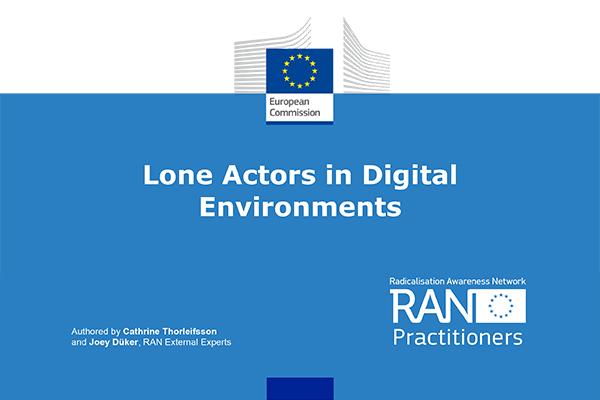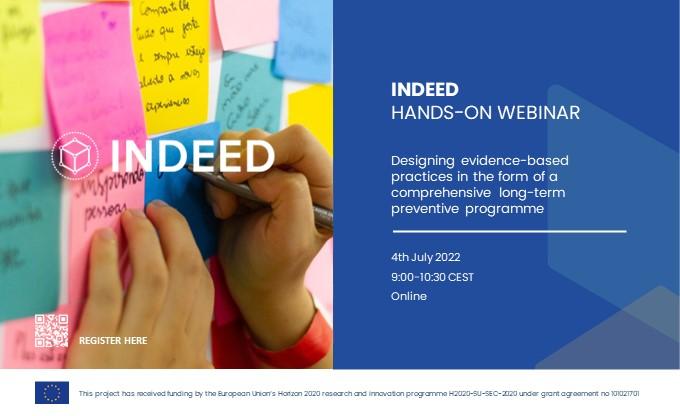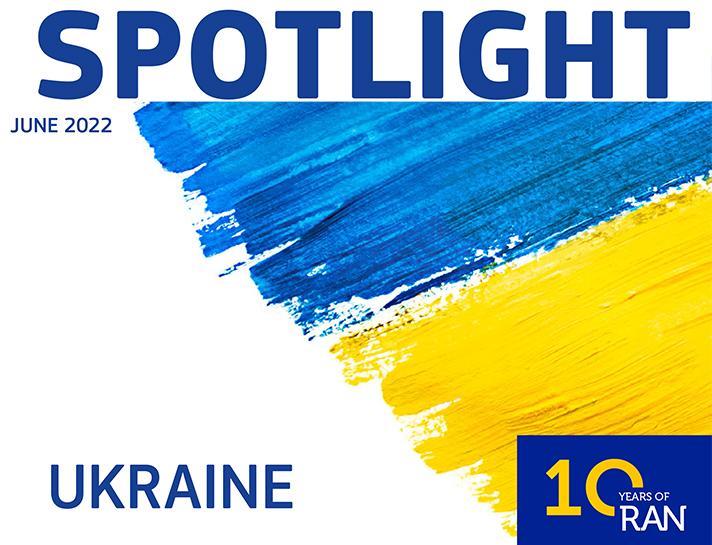
The recent shooting at a supermarket in Buffalo in the US, which left ten people dead, demonstrates the increasing danger posed by online radicalisation. The shooting follows similar style attacks from violent right wing extremists (VRWE), such as Pittsburgh, Christchurch and Halle. The shooting reinforces the need to continue to update our understanding of the digital ecosystem, the behaviour of young people online, the innovations in digital technology, and the exploitation of the internet by terrorists and violent extremists. In this issue of the RAN Practitioners Update, we revisit what we know about the digital environment. We also take a look at events closer to home – at how the war in Ukraine might be impacting the P/CVE environment – through the latest edition of the RAN Spotlight magazine.
Published in March 2022, a ‘Spotlight’ magazine takes a look at the digital ecosystem. The publication looks at the role of technology in P/CVE, detecting manipulated images, and digital grooming tactics deployed by terrorists and extremists.
It also features insights from practitioners on improving the digital literacy of both young people and adults and building their resilience to disinformation, fake news and conspiracy narratives.

A recent episode of ‘RAN in Focus’ takes a look at the impact of technology in P/CVE. The programme discusses the rise of conspiracy narratives, the digital networks used by terrorists to radicalise, and the adoption of technology by practitioners to connect. The podcast hears from three experts working in tech, including Anne Craanen from Tech Against Terrorism, Joshua Fisher-Birch from the Counter Extremism Project, and Ross Frenett from Moonshot, and Working Group lead for the Communications and Narratives Working Group.
A paper, produced by RAN Practitioners in October 2021, ‘Lone Actors in Digital Environments’, provides an overview of digital environments that facilitate the development of lone actors. The paper concludes that online structures and subcultural milieus could be equally important for inspiring violence as connections to groups in the physical world. It suggests that in order to understand this emerging trend, it is important to recognise the online communities that VRWE use to produce a sense of belonging, spread dehumanising propaganda and promote acts of violence.

e-Learning
Resource
RAN Practitioners is providing a new resource for practitioners. Understanding that practitioners are busy with their daily work and not always able to participate in Working Group meetings and events, RAN Practitioners has produced a series of e-Learning training modules which can be accessed online.
All e-Learning modules can be accessed on the website of the EU Academy for free here. Once registered you will be able to immediately start any available courses. After completing you will receive an automated certificate.
Radicalisation and polarisation
The first e-Leanring module is a training for teachers and school staff on managing radicalisation and polarisation in schools, ‘Gérer La Radicalisation Et La Polarisation à l'école’. An English version is soon to follow. The training deals with questions such as “What is normal behaviour for teenagers and what is potentially worrying?” and “How to identify polarisation?”. The training – which was developed by Karen Heremans and Michelle Hassen, both experienced education experts and former chairs of the RAN Education Working Group – points to case studies and tools that can be used in the classroom.
On 4th July 2022, the INDEED project is organising a hands-on webinar "Designing an Evidence-Based Practice." The webinar is part of a series of webinars dedicated to the process of designing a comprehensive long-term preventive programme. Using the example of a programme developed by the Polish Platform for Homeland Security, the step-by-step process of creation will show how, starting from the diagnosis of threat, to go through the process of designing a programme based on the theory of change. All interested can register here by 30th June EOB.

The latest edition of the ‘Spotlight’ magazine takes a look at the potential impact of the Ukraine war on the P/CVE environment in Europe.
The publication, which features articles and interviews with experts and practitioners from the RAN network, looks at issues such as the effect on polarisation, and the proliferation of disinformation, fake news and conspiracy narratives.
It also features first-hand experiences of practitioners in the region providing support to refugees.

Upcoming events
RAN Practitioners Plenary
We are happy to announce that the dates for the RAN Practitioners Plenary have been confirmed:
- The RAN Practitioners Plenary 2022 will be a lunch-to-lunch meeting on Thursday 13 October and Friday 14 October 2022.
- The Plenary will be held offline in Brussels.
- Please keep an eye on the RAN Website and or your inbox for further updates.
For more information on all planned meetings over the coming months of 2022 please go to the RAN Practitioners website.
A recent paper provides insights for practitioners – including local authorities, social workers, prison officers, police officers and practitioners working in refugee/asylum seeker facilities – on the dissemination of extremist ideology and radicalisation within unofficial prayer rooms.
The paper offers recommendations for how to detect these activities and how to deal with the phenomenon. The paper outlines some relevant practices and provides suggestions for further reading.

Contact Us
RAN Practitioners is implemented by RadarEurope, which is a subsidiary of the RadarGroup:
- Phone: +31 (0)20 468 06 08 (office)
- E-Mail: ran
 radareurope [dot] nl (ran[at]radareurope[dot]nl)
radareurope [dot] nl (ran[at]radareurope[dot]nl)
Would you like more frequent updates on RAN’s activities? Gain access to all public RAN papers as they are published, other RAN news and thought-provoking articles on the radicalisation process by following RAN on:
This is an update on the activities of the Radicalisation Awareness Network Practitioners (RAN Practitioners). You receive this email, along with more than 6,000 other people, because you have participated in a RAN activity or because you have registered your interest in the network. If you wish to unsubscribe, please let us know. Feel free to distribute this RAN Practitioners Update to colleagues and invite them to subscribe.
